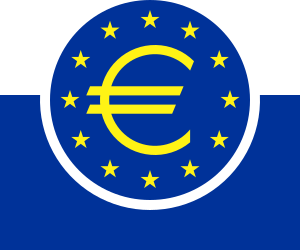| German Logo of the ECB. (Photo credit: Wikipedia) |
Brussels, Apr.26, stock advice .- The European Central Bank (ECB) needs to react to aggressive monetary policy in other parts of the world, a former governing council member of the central bank told CNBC.
"If you take Asia, the U.S. and Europe, Europe is the weakest spot. So you'd expect the exchange rate of the euro to be weaker than the others, but that's not what we're seeing because of very aggressive monetary policy in other parts of the world, compared to Europe. So probably, Europe has to react to that," Lorenzo Bini Smaghi, former ECB governing council member, told CNBC on Thursday.
Bini Smaghi's comments follow a 25 percent weakening in the yen against the dollar since mid-November as the country's central bank has pledged to pump $1.4 trillion into the economy in less than two years and double its monetary base.
Bini Smaghi said the Bank of Japan's policies could create "problems down the road."
"What are the Japanese doing with the money that they receive from the central bank in exchange for assets? They're buying foreign assets, so the exchange rate is going down dramatically and this has an impact on the other economies of the world. They're buying new assets, new risks, so this is having a big impact, and it is not clear that it will not create problems down the road," he said.
Expectations have risen that the European Central Bank (ECB) will announce a 25 basis point rate cut when it meets next week. That follows a series of disappointing data from the region, including signs that Europe's largest economy, Germany, was slowing down. The ECB has resisted cutting the benchmark rate since July 2012.
"It would not be counter-productive certainly, so I don't think it would hurt. That could be a first step for trying to align monetary conditions to what is happening in the rest of the world and what Europe needs," Bini Smaghi told CNBC at the Bellwether Europe business conference in London.
On Thursday, the German Chancellor Angela Merkel made a rare foray into the debate on central bank interest rates, saying that the ECB would have to raise interest rates if it were looking at Germany alone. But, she added, the ECB cannot do so because of the different financial needs of the 17-member euro zone.
(Read More: Merkel Weighs In on Interest Rate Debate )
"If we want to get back to a bearable interest rate level, then we have to get over this internal division of the euro zone," the chancellor said at a banking conference.
But Bini Smaghi suggested the ECB needed to do more than just cut rates.
"Some additional measures will be needed - it will depend on the economic conditions but clearly the fact that other central banks are taking further steps is a challenge for the ECB. You cannot just be the more conservative central bank, otherwise the impact will be on the exchange rate and this will be recessionary for Europe...One should not exclude anything down the road if the situation worsens."
(Read More: Hopes for ECB Rate Cut Could Bring Big 'Disappointment' )
On Friday, Spain is expected to unveil economic growth measures in a move that could heat up the European debate on austerity. Prime Minister Mariano Rajoy has been trying to get more leeway from the European Union on budget deficit targets as the country grapples with recession. Meanwhile, Italy's new prime minister, Enrico Letta, told policymakers this week that "Europe's policy of austerity is no longer sufficient."
Bini Smaghi recognized that the political climate had changed, but said that countries that delay reforms, would be left with less room for maneuver: "You should distinguish austerity from reforms. The problem is that Europe needs reforms and growth can only happen if there are major social reforms. If countries cannot do that, they are left with austerity ."...

No comments:
Post a Comment